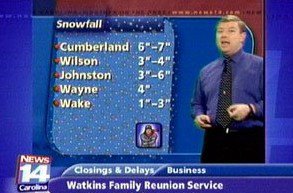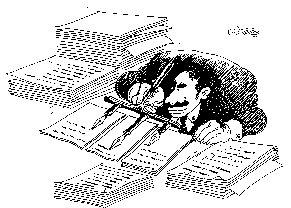
Sorry about the bad Seinfeld pun, but our celebration of the holidays will not begin until we complete our school duties.
Read the classic Christmas story,
The Gift of the Magi, in preparation for your test next Monday.
Click here to follow the link to the text. You might want to print it out.
Focus on the point of view, the author's writing style (diction, sentence structure, narrative "tricks"), and the religious symbolism. Though the story is simple, some words might require a trip to the dictionary (or a click on the hyperlinks).
Here is the rest of the test review. E-mail me at
fiospartan@aol.com if you have any questions.
Know definitions, examples, advantages of these points of view:Interior monologue
First person subjective
First person detached autobiography
Third person—single character omniscient
Third person—dual character omniscient
Third person—multi character omniscient
Third person—objective (no character POV)
The Stone BoyReview notes on handout. Focus especially on description.
Description and setting notes from class
Handout from
Usher and
Of Mice and Men
The Portable Phonograph—examples of concrete details, sensory images, figures of speech, richly connotative words;
Restorative power of music—
The Portable Phonograph (DeBussy),
Shawshank (Mozart),
Life is Beautiful (Offenbach)
Important author notes— Walter Van Tilburgh Clark, Katherine Anne Porter, Cynthia Ozich, Roberto Benigni, Dorothy Parker, Shirley Jackson, O. Henry
The Shawl— examples of concrete details, sensory images, figures of speech, richly connotative words
The Jilting of Granny Weatherall—third person, single character POV--some use of stream of consciousness
A Telephone Call—interior monologue by Dorothy Parker
A & P—first person subjective, verisimilitude of character (notes)
The Lottery—third person, objective (no character POV)
The Gift of the Magi—third person, (single character POV)
Storytelling "tricks", religious symbolism, point of view, diction
Life is Beautiful—look over handout for Benigni notes and be able to write about one of the following:
Linguistic (language) humor
Cleverly foreshadowed gags
Mockery of Aryan Supremacy
The Power of Imagination—Making Life a Game
Cheapening the Holocaust?
 Here are some links that will give you the steps of The Hero's Journey, an idea developed by Joseph Campbell and presented to you by Mr. Gamgemi.
Here are some links that will give you the steps of The Hero's Journey, an idea developed by Joseph Campbell and presented to you by Mr. Gamgemi.



